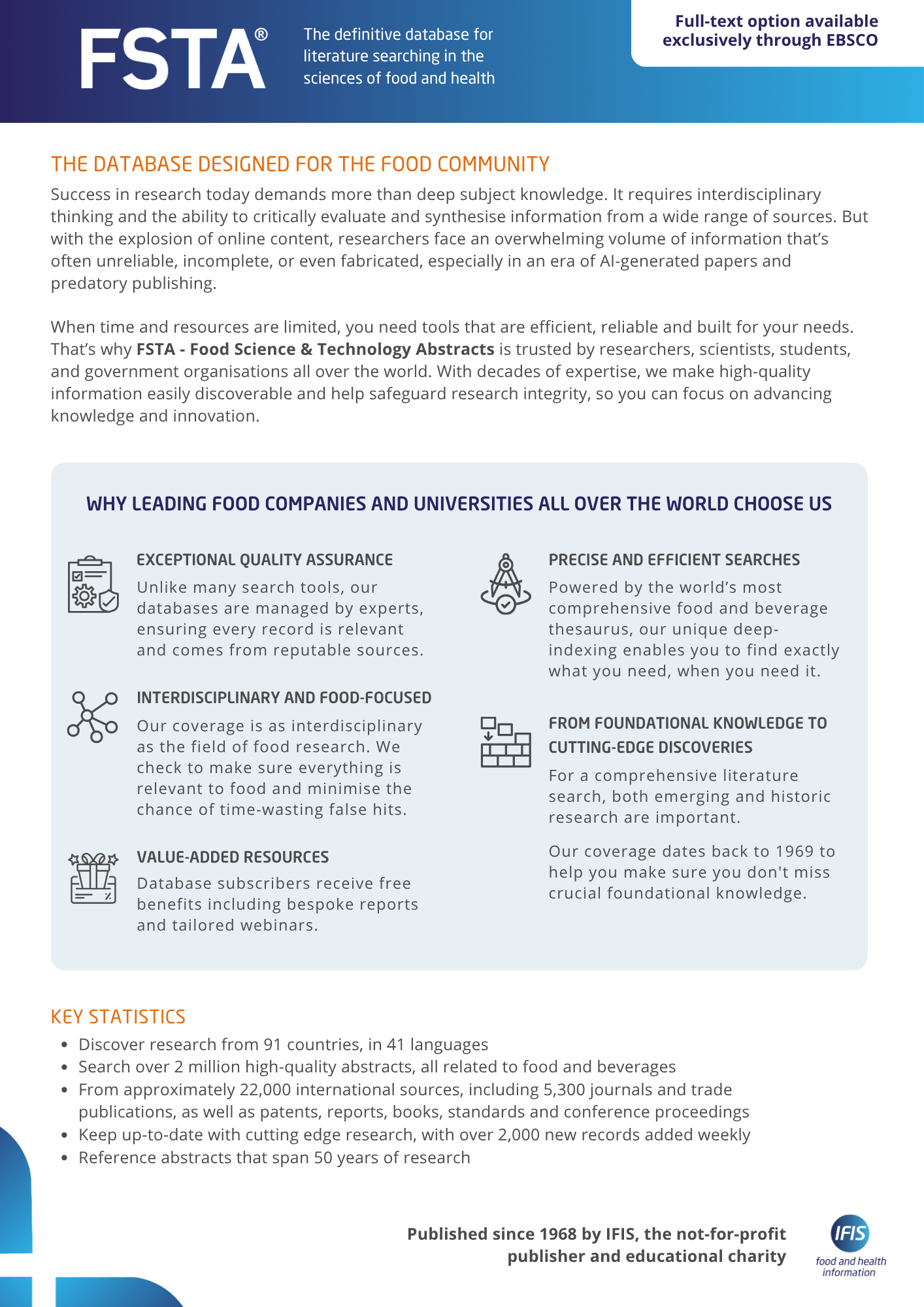Welcome to IFIS Publishing and FSTA
- A flyer with details about FSTA
- Reports on bibliodiversity and safeguarding research integrity
- Contact details for Carol Durham, who is attending the EBSCO open day in Turin and is available to answer any questions during or after the event

Carol Durham, Head of Sales & Partnerships
To keep in touch with Carol, email her at c.durham@ifis.org or connect on LinkedIn.
Discover FSTA, the trusted database for research in the sciences of food and health
Explore how FSTA – Food Science & Technology Abstracts supports high-quality, interdisciplinary research across food science, nutrition, health, and beyond. Used by leading organisations worldwide, FSTA offers precise, reliable search capabilities and deep indexing powered by the world’s most comprehensive food and beverage thesaurus.
Available as an abstracting and indexing (A&I) database or with full-text access exclusively through EBSCO, FSTA gives you the flexibility to choose the option that best fits your library’s needs.
Download the flyer to learn more about FSTA and how it can enhance research and teaching at your university.
To arrange a demo or trial, contact Carol or your EBSCO Account Manager.
Download your copy of our exclusive library reports
Safeguarding Scholarly Information Amid Rising AI and Paper Mill Threats
Fraudulent publishing practices like hijacked journals and AI-generated fake papers pose serious threats to research quality. Our report outlines the issues and shares a case study of how our editorial team identified and excluded a hijacked journal, protecting the integrity of the FSTA database.
Why Bibliodiversity Matters for Scholarly Discovery and Research Integrity
Without globally representative indexing, important insights remain hidden, research becomes skewed, teaching diminished, and policy and funding decisions are weakened, despite researchers believing their searches were complete. And excluding diverse voices isn’t just a technical flaw - it’s a moral one.

